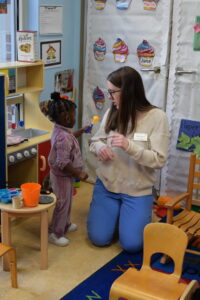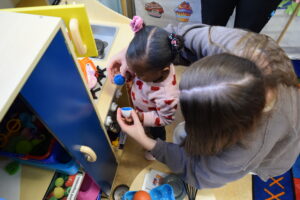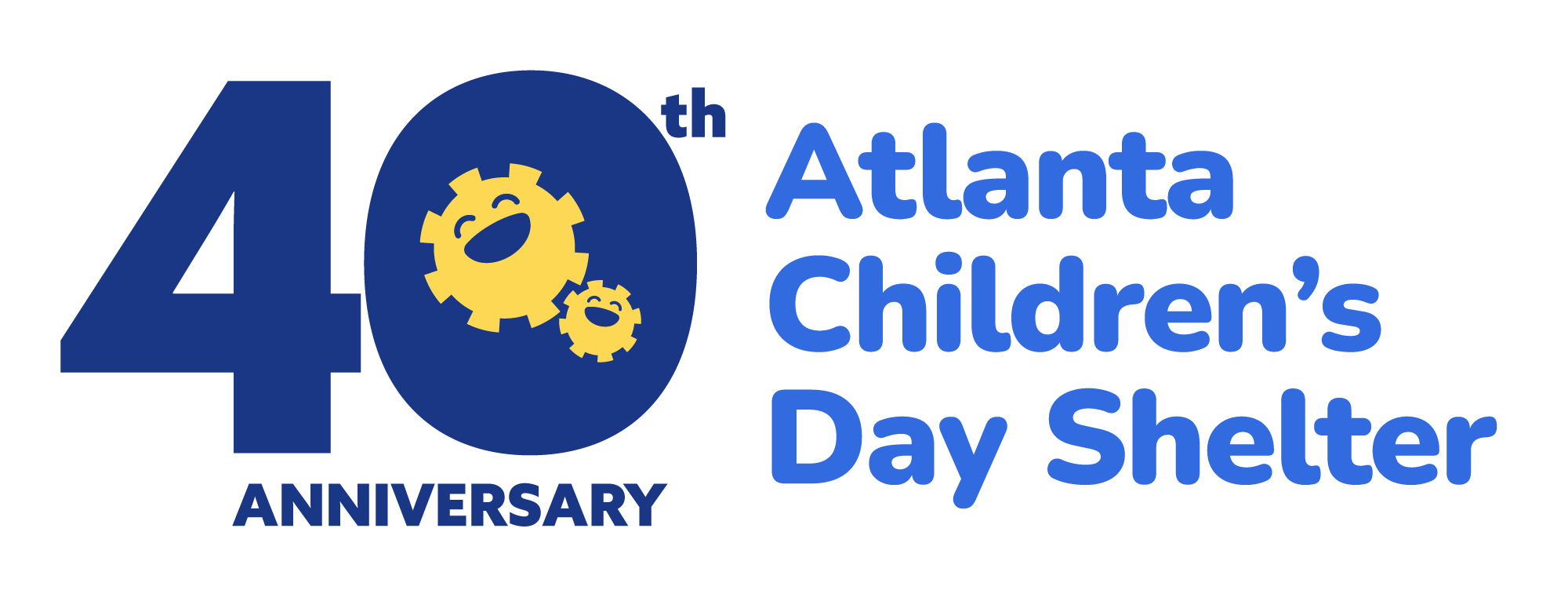Occupational Therapy is for Everyone! – Lindsey’s Amazing 2025 Capstone
The Day Shelter has a new addition in occupational therapy doctoral student, Lindsey! Lindsey is working on her capstone project (required to complete her PhD). Her primary objectives are 1) to support the Georgia State occupational therapy students that visit the Day Shelter and provide services regularly and 2) to increase access to occupational therapy by educating parents and faculty. Lindsey cares deeply about making occupational therapy accessible for all!
But Wait, What’s Occupational Therapy?
Occupational therapy (OT) helps folks perform the activities of their daily lives. In childcare settings, occupational therapists (OTs) help children meet their developmental milestones, many of which incorporate their activities of daily living. Lindsey explains, “Meeting developmental milestones for children is all about play… [Kiddos] do things through playing. So, OTs can work on specific milestones with them through play.” Through play, OTs help children develop fine motor skills, such as grasping small objects, and gross motor skills, like running and coordination.
Lindsey adds, “If they have fine motor delays, we can work on puzzles. Working on those puzzles and strengthening those small muscles in their hands, then, makes it easier for them to put their socks on, to tie their shoes, to brush their teeth, to get the small cap on the toothpaste off, things like that.” By ensuring children receive this support early, OT helps prevent developmental delays from compounding into greater challenges as they grow.

An occupational therapy student from Georgia State University working with a Day Shelter client
How OT Helps Parents
Lindsey’s capstone particularly focuses on broadening access to occupational therapy by informing parents and educators. Those experiencing homelessness “face a large number of barriers… when it comes to receiving proper health care. So a lot of parents don’t even know what OT is because they haven’t been told about it at a pediatrician’s office,” Lindsey shares.
To bridge this gap, Lindsey is developing accessible resources, including handouts and short educational videos, to inform parents about the benefits of OT. These resources will be presented during monthly Parent Pods, ensuring families have the information they need to seek support. “OT is just another tool in your toolbox to help your children learn and grow,” Lindsey emphasizes.

Lindsey working with a Toddler 2 student on fine motor skills
How OT Helps Educators
Not only will Lindsey support our parents, but Lindsey wants OT to be a tool in faculty toolboxes as well. For our faculty, OT techniques, not only help with reaching developmental milestones, but also can help with classroom management. To grow our faculty’s use of these techniques, Lindsey will use a portion of our teachers’ professional development sessions to offer practical strategies to support our kiddos in sensory processing, muscle development, and social interaction. “Once they have those materials, they can better understand why the students are interacting with [other] children in certain ways,” Lindsey says.
By fostering collaboration between educators, parents, and OT practitioners, Lindsey hopes to create a more supportive world where children are supported in every environment.


